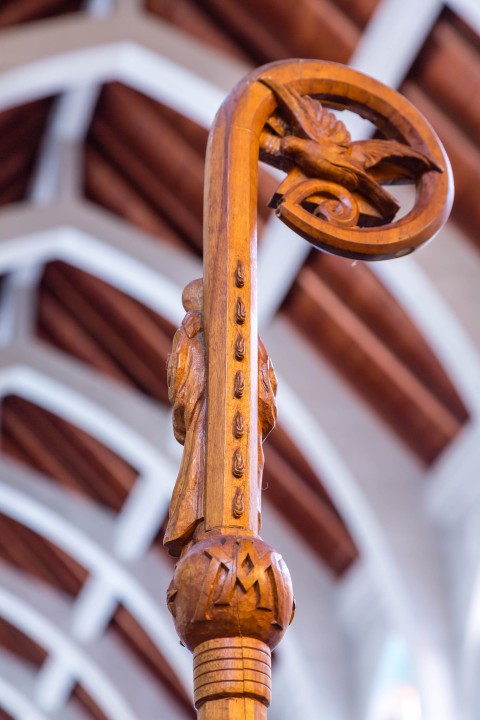The Spirit's work, denied after the fact
United Methodists have been down this road before. What's different this time is that Karen Oliveto is already a bishop.

United Methodists concerned about the denomination's ongoing exclusion of LGBTQ people were disappointed last Friday when the latest rulings came down from the Judicial Council. But we weren't surprised. We've been down this road many times since the clause "homosexuality is incompatible with Christian teaching" was added to our Book of Discipline in 1972, and the council's response is almost always the same.
This ruling was different, however, because the question before the council involved the "nomination, election, consecration, and/or assignment" of a sitting bishop: Karen Oliveto, an out, married lesbian. It appeared to bring the church to the brink of a constitutional crisis. Can one jurisdiction bring a complaint against another jurisdiction over its choice of bishop? Was the jurisdiction that elected Bishop Oliveto in the wrong by allowing her to run, and then electing and consecrating her? Does the Judicial Council have the authority to unseat a bishop in good standing?
The hearing was held last Tuesday, written petitions were submitted, and the ruling came on Friday. While Bishop Oliveto remains seated, her nomination, election, and consecration were deemed “unlawful.” She is what the Book of Discipline calls a “self-avowed, practicing homosexual,” and she is vulnerable—as is anyone who participated in her nomination, election, or consecration—to charges brought by anyone in the church. This, in turn, could lead to the stripping of standing.
The decision laid out the procedure for filing charges. Anti-LGBTQ groups have already prepared charges to be brought.
The night before the hearing, the Council of Bishops announced a called General Conference in 2019. The work of the church’s latest commission is not yet complete, but given the ruling and the responses to it, the UMC appears to be travelling irreversibly down the road to a split. Presumably the plan for dissolution will be brought forward at the General Conference.
The UMC has only been in existence since 1968. It's a church that has many strengths and that has done much good. It is astounding to me that it could be born and die so quickly.
And it's astounding that those who claim to love God and know Christ as Methodists could be so hard of heart. A wise pastoral leader is called into question because of who she loves—her spouse to whom she has promised fidelity for the rest of her days. Bishop Oliveto has effectively pastored a large congregation; she has served with grace and skill for years. Yet she is as vulnerable to discipline as someone who has abused their power or position.
Methodists believe that the Holy Spirit is at work in the election of a bishop; the council simply dismisses this work as "unlawful." I have a lot of love for our bureaucratic, democratic structure—it can be a gift that allows an array of Christian voices and experiences to affect the life of the church. But in this decision, the Spirit's work has been denied.
This decision hurts people and places them at risk. LGBTQ people are hearing from the church that their call is invalid, that their lives and loves are unlawful. I have been buoyed by the words of people with more courage than they should need, people like Jarell Wilson who claim their call and their worth despite this latest injury. I am proud to be among the young clergywomen voicing our deep opposition to this action, and grateful for the various bishops who have offered helpful statements.
But I am also so sad. Just hours after the decision, the Wesleyan Covenant Association, a splinter group launched in October, released a statement that “call[s] upon those who feel they cannot, in good conscience, abide by the doctrines and discipline of our church, to seek an honorable exit from our denomination.” The timing was almost laughably ungracious. I will not regale you with the colorful responses this request elicited in my circles, but as the desire to shout profanities has subsided, I am left heartsick by the WCA's unwillingness to recognize so many of our denominational positions as what they are: historically contingent, and based on a particular biblical hermeneutic. Instead the WCA's membership is digging in its heels, and it looks like the denomination may go down.
I am in mourning, because our church cannot overcome its divisions. And this makes me even more anxious about our nation’s ability to do so. I know that God is good, that my Redeemer lives, and that the Spirit is still at work in the world. But it breaks my heart that this Spirit is not recognized in the denomination that is my home and that taught me to love God and follow Christ—that the call to love God and neighbor is being superceded by other, lesser calls.




